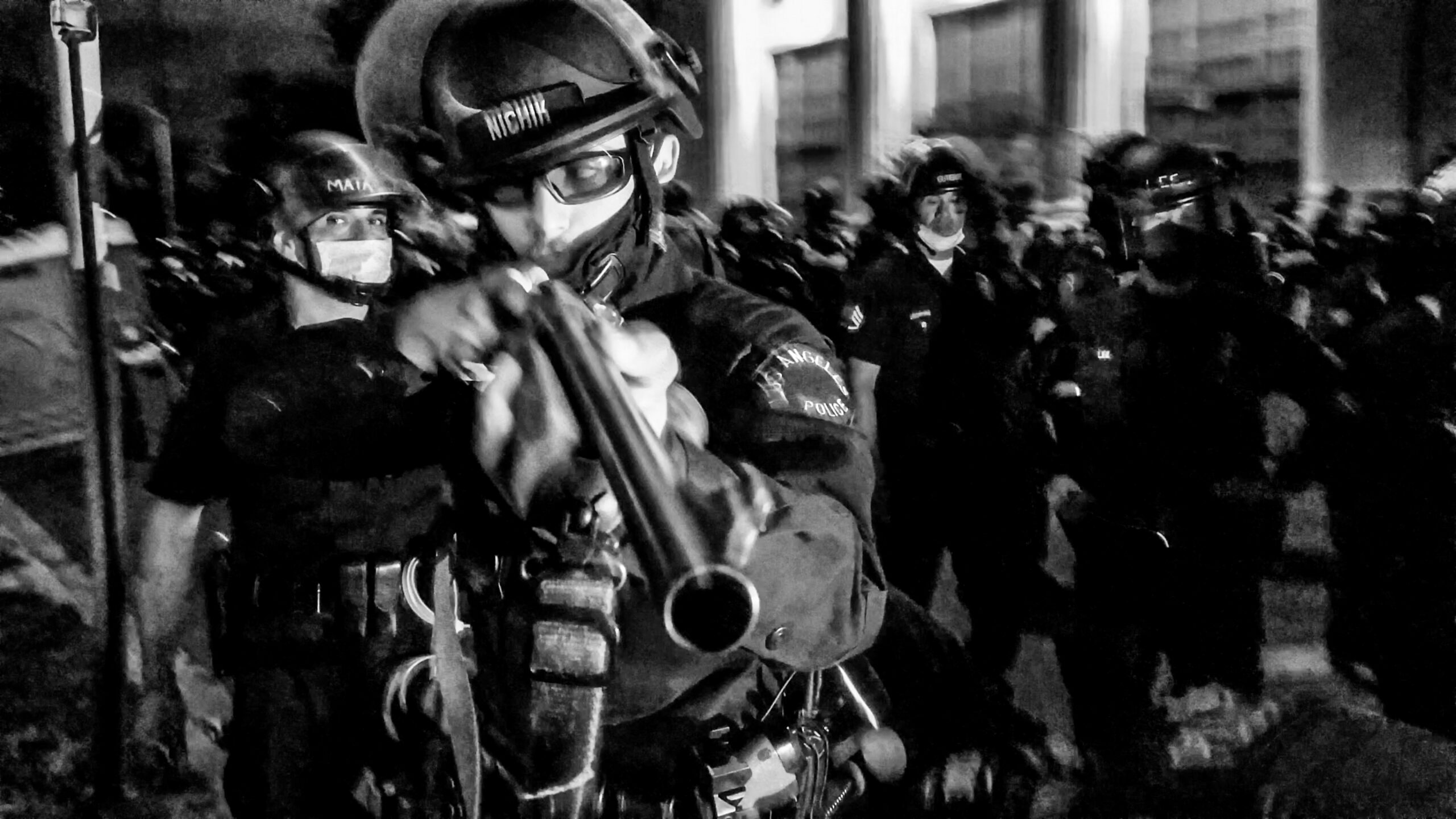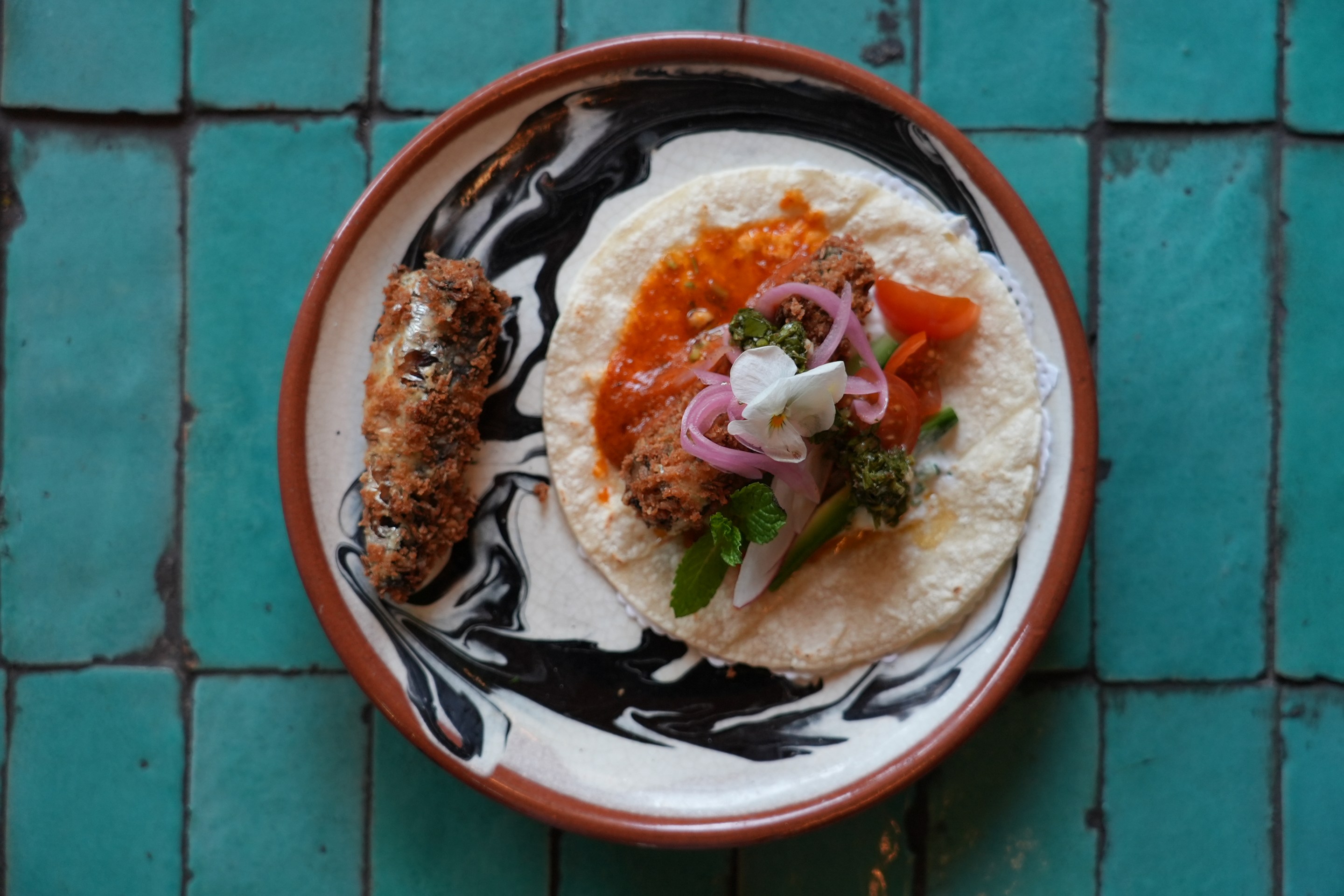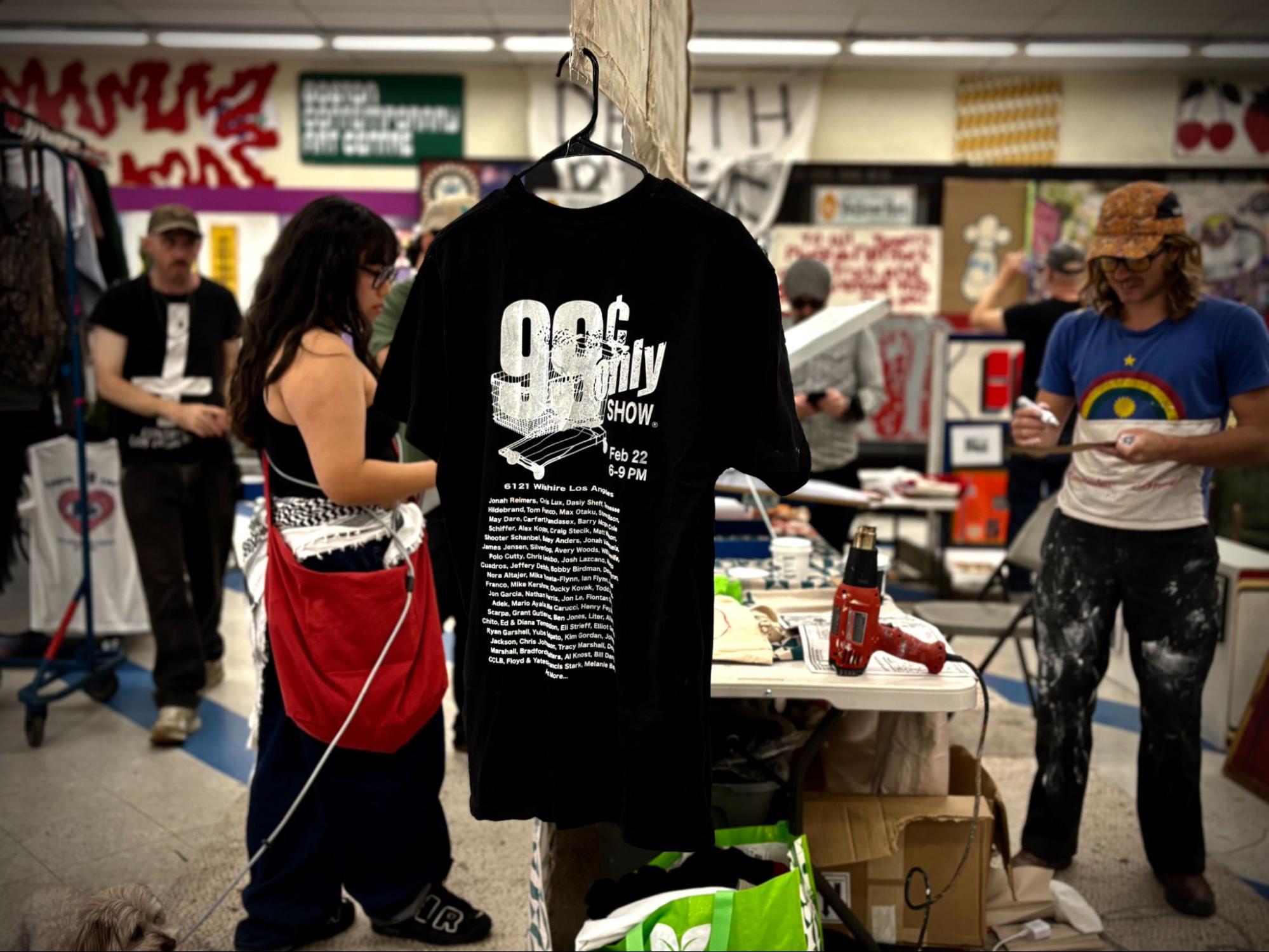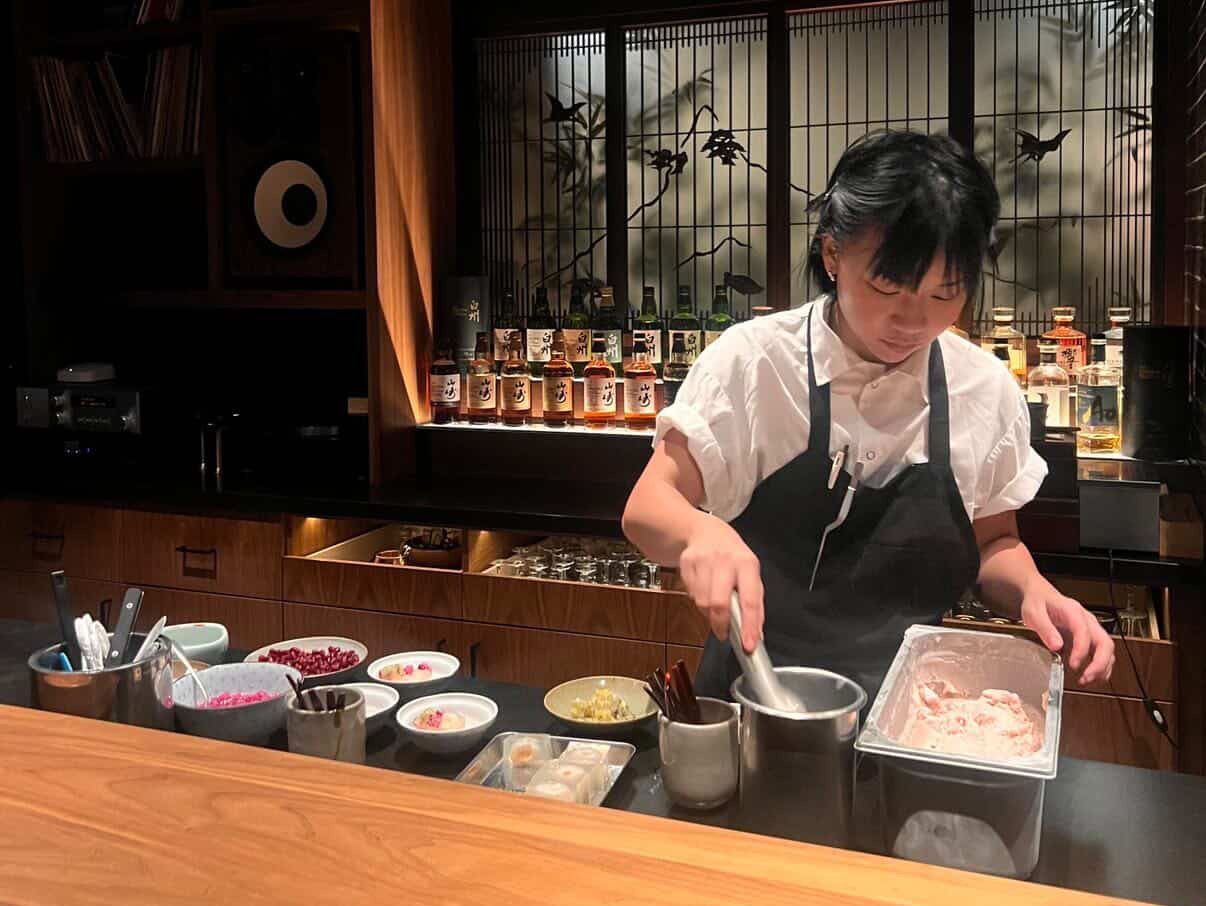A ban on consciously filming police officers within a distance of eight feet of them, and without their permission, was signed into law by Arizona Governor Doug Ducey (rhymes with douchey) on Thursday.
The law, HB 2319, was introduced earlier this year by state Representative John Kavanagh, a former New York Port Authority cop, was approved less than year after the U.S. Department of Justice launched an investigation into complaints about Phoenix police directing excessive, discriminatory, and sometimes deadly force towards the city's homeless populations, as well as retaliatory policing towards people whose activities are protected by the First Amendment activists. The department's history of racism was not specifically mentioned in the DOJ report, despite widespread evidence of police discrimination towards Black, Latino, and indigenous Arizonans.
Breaking the law, which goes into effect this September, would be a misdemeanor, with violators would most likely getting slapped with a fine. It makes no exceptions for media who may be covering a crime or emergency situation on public property, greatly reducing the ability of journalists to do their job, particularly as many activists and U.S. residents demand greater transparency of police departments as well as reliable reporting on police brutality.
A hotly debated ordinance in Tuscon, which would allow cops to cordon off an area and limit what they would self-judge as "interference," was repealed in 2020, amid heavy resistance from members of the public, backed by ACLU of Arizona.
The law's approval in a state that tolerated Joe Arapaio and was the last to honor Martin Luther King Jr. Day may sound expected. But we have to wonder if such a law could or will ride on the wave of recent Republican extremist terror to take root on local or national ground.
There's no question many police departments and their advocates in power around the country are doing what they can to stop individuals and journalists alike from filming or photographing them in the field, no less after a 17-year-old bystander filmed Derek Chauvin murdering George Floyd, setting off calls for police accountability and the punishment of police abuses.
According to a story in MIT Technology Review, journalists have been arrested and had their equipment and materials seized in the middle of large protests where cops have used excessive force, amid a Trump-era swelling of anti-journalist sentiments among right-wing voters and institutions.
Such is the case of photographer Kian Kelley-Chung in Washington D.C, who's work has appeared in The Washington Post. Kelley-Chung successfully sued multiple officers and departments with help from press advocates groups, after being zip-tied, arrested, and having to fight to get their equipment and footage back.
A Latino man who was pepper-sprayed and arrested while filming his son's arrest in Keller, Texas, also sued his arresting officers, getting one of them demoted, in another scenario that likely makes police wary of being captured on video.
The same article also relates the experiences of Stop LAPD Spying Coalition organizer Hamid Khan, who details the police taking matters into their own hands to stop the fully legal, Constitutionally-protected practice of filming police interactions with the public. Methods that include using body mass, threats, intimidation, and harassment against those wielding cameras. In at least one cited incident, police have cited "interference" with a police investigation or action to deem the legal filming against the law.
In California, a so-called "safe state" where left-leaning politicians willing to mandate we make our own insulin are sometimes said to rule, people can complacently come to believe these draconian laws against the press and public won't fall into the favor of potentially abusive police.
But the reality on the ground is, in fact, quite dangerous for West Coasters who do film the police .
George Holliday, the man who filmed Rodney King's horrifying beating at the hands of several LAPD officers and died of COVID just last year, said that filming the brutality thrust him into the public eye, history, and earned him a couple of death threats. An advocate for the police, he was generally treated well.
In 2000, the ACLU filed a federal lawsuit against the LAPD for attacking members of the public and targeting members of the media during protests at the Democratic National Convention at Staples Center, in which the cops deployed batons, pepper spray, and nonlethal bullets towards a crowd. Al Crespo, a freelance photographer filming the police response, was shot three times, injuring him in the head, body, and ankle. Ultimately, seven journalists settled with the city over their rough treatment, with the requisite calls and ensuing vows for reform.
None of which has stopped accusations that L.A. police still take a heavy hand towards vigilantes and awarded journalists alike who use cameras and reporting to hold them accountability for using violence towards the public.
Local activist William Gude of Film the Police, known for filming police stops in Hollywood, recently unspooled a long thread on his Twitter in which he acknowledges local rumors that his son's murder may have been retaliation for his continued activism. The tragedy, which also took the life of a young girl, continues to be met with a seriously screwy investigation, according to his claims, while the activist himself has been a perpetual target of police charges.
L.A. journalists covering recent protests in favor of racial justice, sweeps of homeless encampments, and most recently, the overturning of Roe Vs. Wade, have been victims of alleged abuses at the hands of cops, as well as right-wing protestors, while trying to produce coverage of the events.
Only two months ago, Jonathan Peltz and Kathleen Gallagher, two journalists with Knock LA, sued the city over their arrests while covering 2021 protests at Echo Park over the sweep of homeless encampments, while merely doing their job, echoing the heavy hands police took with members of the media who were covering racial justice protests in the wake of Floyd's murder in 2020.
And only weeks ago, L.A. TACO's own Lexis-Olivier Ray, a veteran journalist known for covering protests in New York and L.A. and just about the only member of our staff brave enough to continue that work, was shoved to the ground while covering the interactions between police and activists during pro-choice protests in downtown L.A., reaffirming our newsroom's notion that city officers remain primarily concerned with obfuscating their routine actions.
Ray was similarly treated with excessive force by police while covering the 2020 celebrations following the Dodgers' World Series win, leaving the scene “battered with lacerations” and later the only person on the entire scene that police tried to prosecute for failing to disperse, a charge that was later dismissed.
Earlier that year, Ray was hit in the stomach with a baton while covering protests over Chauvin's crimes, in which local journalist Cerise Castle, known for her reporting on sheriff's department deputy gangs, was shot with a rubber bullet while hoisting her press badge above her head and another journalist, Samanta Helou-Hernandez, was arrested while reporting on the scene.
Ray later detailed the fear and depression that followed the "scariest days of his life.
Asked about the Arizona laws over Slack, Ray writes back, "I would just say, in some ways the law is irrelevant. If a police officer in L.A. wants to obstruct your ability to film them, they’ll find a way. it’s happened to me many times, whether it be shining a flash light into the lens of my camera to flare out the lens or preventing me from entering a public area to document a protest."
Ray's warning reminds us of a recent police practice seen around town that was eventually ended in Santa Ana after a public outcry and lashing from city officials, in which officers were loudly blasting copyrighted Disney songs while making arrests, so the media would not be allowed to show them without gaining legal permission from the family entertainment giant.
As we wait to see if Arizona's new laws may usher in a whole "New World Order" that limits journalists and the public's right to film police on public property, take a minute to familiarize yourself with some tips if you're seeking to film the police legally yourself.






